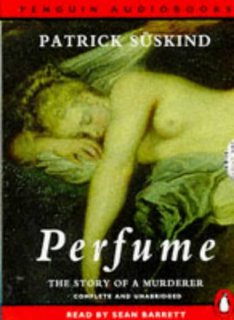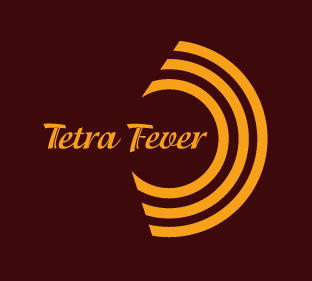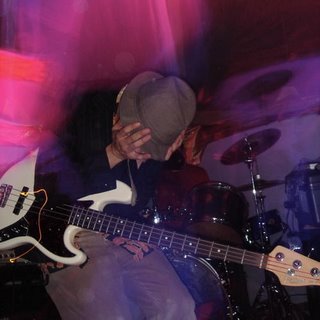
I have never been much of a theatre-goer, not because of a dislike of the medium but simply because one didn’t meander in the right circles. Until university – if it teaches you nothing (or makes you employable), it will broaden your horizons, often not by what is taught but through the people you meet. But I digress. What I meant to say is that I have no experience with theatre and its critics, am innocent ignorant of its politics and semantics and might therefore produce a pile of wank based solely on my limited understanding, grandly calling it a review.
I had no idea what to expect, but in my mind I saw an ordinary stage with the audience neatly separated from the action into rows of velvet-spanned chairs, while the actors would dramatically fly around the scratched floorboards of the stage, seamed by dusty curtains matching the upholstery.
What we got instead with
Stagepunk Theatre's "Consenting Adults", as it premiered at The
White Bear Theatre in Kennington, was a small-ish room lined by two rows of chairs where the border between stage and audience is made up by the toes of the latter. There is no way of hiding in your seat during uncomfortable scenes, removing yourself from anything that scratches your comfort zone with demon claws. You are as exposed as the actors – in some respect, your reaction becomes part of the play. I have no idea whether that was intentional, but it helped. It’s what makes theatre so appealing to me: it’s the rawhide of dramatic performance. It is immediate and in-your face, rather than the overpolished recordings of film. I cried when I saw Hamlet on-stage in November (starring three members of the aforementioned theatre group). But
"Consenting Adults" took it to a whole new level.

As we edge ourselves along the row of seats, plonking ourselves down with our pints wedged between our feet, the stage is littered with boxes, abandoned toys and various rubbish. Simon Jay sits motionless on a workbench facing the wall, with his back to us, eerily reminiscent of a scene in the Blair Witch Project. Monty Python’s
Intermittence Music doodles in the background, enhancing the grotesqueness of the image while adding a strange sense of humour to it. I am already spooked, and the image is so strong I fail to spot the other actors. Until the pile of rubbish in the centre of the stage literally explodes, spitting out Stephanie Jane Gunner sans clothes, the innocent babe, who, from the second of her emergence will be stripped of her liberty of mind, her dignity, and become a creation of her own visceral responses.
What follows now is a continuous, hour-long violation of my subconscious. The kind you wanted really, bitch, while acting coy. The sweet, scratchy nostalgic sounds of 1950s sex-ed PSAs (if you remember, the
PSAs of those days even made nuclear holocaust sound like a picnic) fill our ears, conjuring up images of innocent ponytailed girls in petticoats being prepared for their entrance into the adult world of romance and old school chivalry. But what happens onstage turns it into sinister mockery. Molly, totally at the mercy of what society teaches her in theory, soon enough learns her own lessons. The gap between the friendly sweet neighbourhood advice ringing from the speakers and what actually unfolds on stage widens quickly, drying my throat. A sense of betrayal pervades the first part. Molly seems a victim not just to the vile men she loves, or her ill preparation by those in custody of her, but by life itself. Seeing her with her head in a box of emotions, being seemingly violated by the sheer insanity of her own puberty, then lying on the floor, twitching in shock, is almost too hard to bear. Having her lie at your feet makes you feel as guilty as a passive bystander who doesn’t want to get involved.
Molly moves in stages through her female evolution, each time emerging as a new character. Her vulnerability is shed, hardens, with each new experience, each new boyfriend ripping away a piece of the sweet innocence, reshaping her expectations and her resolve to adjust. Too much a prude, lose your man to cheating, and become a vixen, seeking the bad guy. Bad guy hurts you, you resolve to become the Iron Virgin, cold and angry and closed up.
The rape scene – yes, there is one – is not brash and cliché or in any way gratuitous, but much more fluid, starting from an innocent dance. It’s the type I call the 'boyfriend-girlfriend rape', the type that makes a girl question at what point she perhaps unwittingly consented or whether she consented at all. The type that will shake her up to her foundations, not knowing her role in it. There was no ripping of clothes... the image of bad boy Steve, played by Simon Jay with a dark elegance and bleak psychopathy, tearing down his zipper was more sinister than flying buttons ever could have been. It’s clean rape, rape good enough for The Times and the Upper Classes, none of the National Enquirer filth, rape that keeps up appearances, covering the hell beneath, but this way so much more horrifying. There was no screaming. Molly did not know what was happening to her, at what point this had turned against her. That they were fully dressed just added to the shock. Stephanie delivered an amazing performance, both subtle and powerful, every inch of her screaming out what was going on inside her. Seeing the emotion in her face was too genuine to take lightly, the frozen shock, brokenness, endurance, confusion, watching her shake – it made my guts cramp up. I had to remind myself if wasn’t real.
The one question that pestered me throughout this part of the play was: Is Molly becoming her true self, stripping herself of her societal education to become an empowered female or is she just a reactionary product of her experiences? It makes it a thoroughly feminist play – but it has none of the blind man-hating gusto that comes with some of those. Rather, it seems to uncover the ever-perpetuating violence, whether recognised as such or not, against women, but also their part in it.

The second part appears to be completely disconnected from the first. At first glance it seems like a harmless, weirdly sado-masochistically sexualised version of
Jeeves and Wooster. Simon Jay, playing a posh gentleman called Algernon, engages in light and jolly conversation with his butler Alec, played by Zack Polanski, but the conversation quickly degenerates into sheer perversion while never losing its lighthearted tone. As the interaction goes on,
Jeeves and Wooster appear to morph into a bizarre cross with
American Psycho, at times in the lingo of the AOL chatroom play of a grooming perv, without failing to deliver the upper class manners the Empire prides itself on. The combo makes you laugh, but the laugh comes uneasy. It is disturbing, but at times so grotesque it creates its own comic relief – but the laughter bubbling up in you is veined with guilt. The juxtaposition of the sweet and the brutal, the posh and the vile becomes so extreme at times that your laughter turns into a form of psychological defence. Don’t get me wrong, it IS hilariously funny... but sometimes you feel you shouldn’t be laughing at these things, but can’t find any other way to cope. Yet the aftertaste, at least to me, was not foul... I felt enlightened.
When Lady Bracknell enters, dressed in a strange Victorian outfit, something in me clicks. She is a grown-up version of Molly, a hardened woman of dubious gender, the exact opposite of the creature that was born at the beginning and the final product of her experiences. Now she is not just perpetuating sexual violence, she wholeheartedly embraces it, only to comment in a blasé manner on its medical dangers.
The play was hard work – it wore you out, the ever-changing mood from funny to shocking pulling and pushing you, leaving you ever unprepared - It felt very much like Life itself. Stephanie Jane Gunner’s acting was intense and heartfelt, pushing every nuance, probing into every emotional nook and cranny. Zack Polanski gave you both the sweating testosterone driven male without becoming his own cliché as well as the jester-licious butler type with a healthy dose of deranged humanity beneath, and Simon Jay was, as ever, of disturbing elegance and emotional intensity which seems to become his trademark.
So what have we learnt today: Consent is shown to be not just a simple yes or no... it is a psychological process that will change you for good and from which there is no coming back, but at no point would it permit either the characters or the audience a remittance from responsibility. Yet there is no black and white/either-or mentality: it demonstrates and acknowledges that there is no such thing as either a victim or a participant. It questions the very nature of psychology and self-awareness; humans appear both enlightened and self-aware but simultaneously prone to their animal instincts.
"Consenting Adults" was not just a play but a powerful reproduction of the nature of life itself, of the psychology and evolution of sexual communication, a sarcastic and grotesque commentary on social etiquette that would yet not fail to smirk at itself... something that hit almost too close to home for me, but for this very reason becoming a masterpiece. Like John Osbourne once said, it has only merit when it evokes a reaction ... and tonight John Osbourne would have been proud.






















